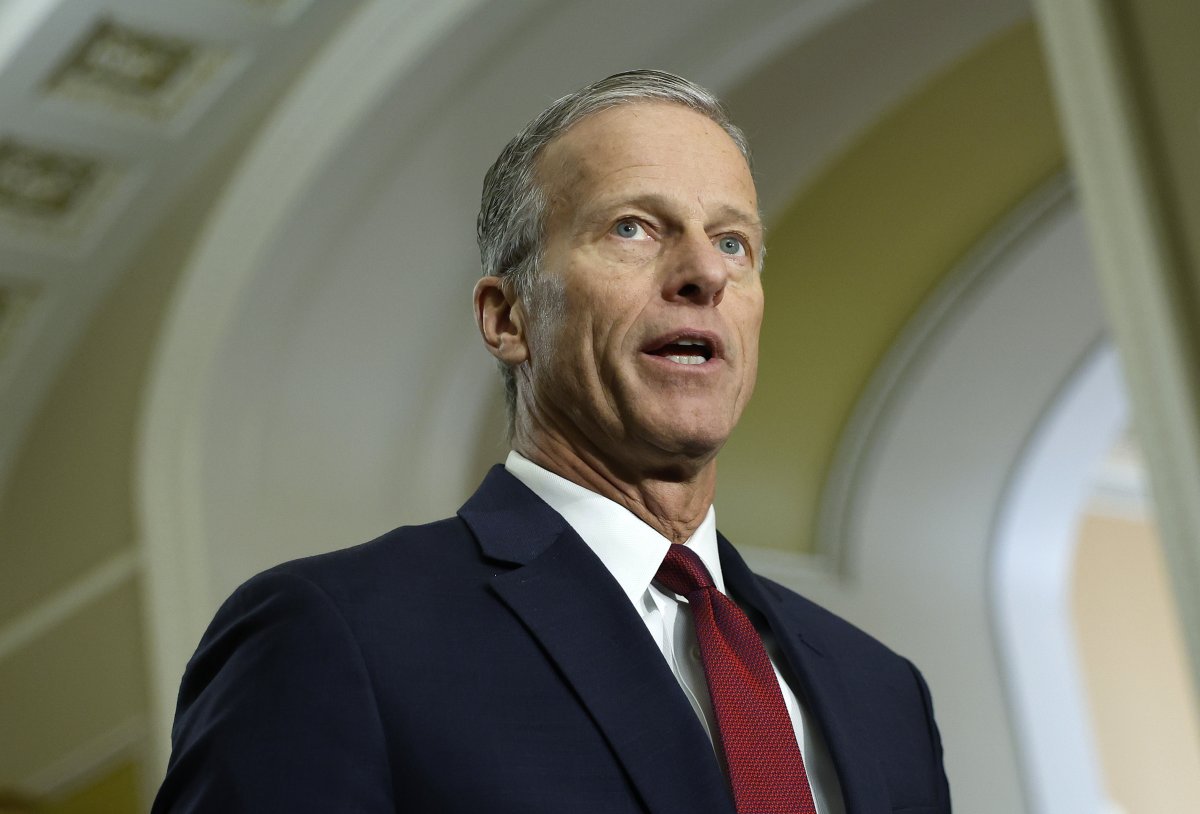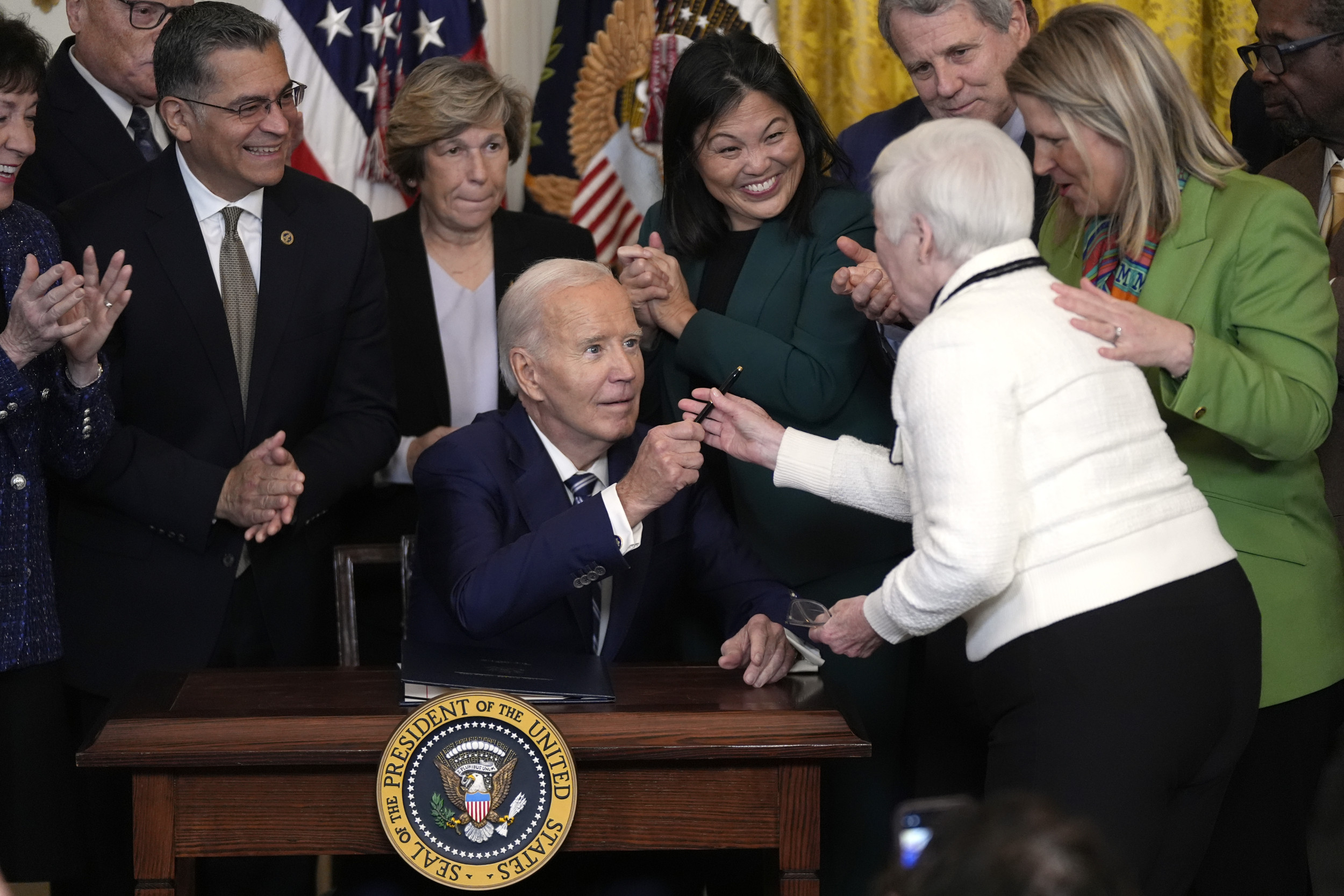New Senate Majority Leader John Thune, a South Dakota Republican, opened the two-year Senate session Friday with a vow to keep the filibuster.
Why It Matters
The filibuster is a controversial legislative tactic that allows senators to delay consideration of a measure and require 60 votes for passage. Many people want to get rid of the filibuster, and President-elect Donald Trump has previously called for its removal.
What To Know
During his first floor speech as leader of the Republican-controlled Senate, Thune vowed to keep the filibuster, saying that his priority would be to "ensure the Senate stays the Senate."
Thune said the filibuster has "perhaps the greatest impact in preserving the Founders' vision of the Senate."
"There are a lot of people out there who would like to see the Senate turn into a copy of the House of Representatives," Thune said. "And that is not what our founders intended or what our country needs."

The Controversial Filibuster
Senate Republicans have long wanted to keep the filibuster even during the first half of Trump's first term as president—when the GOP controlled the executive and legislative branches—when he asked for the filibuster to be eliminated and for lawmakers to speed through his agenda.
Many Democrats wanted to remove the filibuster early in President Joe Biden's term. However, moderates in the Senate Democratic caucus blocked this from happening as they believed it would upend the Senate's deliberative role.
Senate Sworn In By Kamala Harris
Nine new senators were sworn in on Friday by Vice President Kamala Harris, who lost this year's presidential election to Trump. Out of the nine freshmen senators, four are Democrats and five are Republicans.
There were also two new senators, both Democrats, who were already sworn in last month to fill vacancies. California Senator Adam Schiff, who replaced the late Democratic Senator Dianne Feinstein, and New Jersey Senator Andy Kim, who replaced former Democratic Senator Bob Menendez after he resigned in August after being convicted on bribery charges, were sworn in again on Friday.
New and returning senators took the oath of office and signed a ceremonial book at the dais in the upper chamber in groups of four on Friday.
John Thune Elected As Leader
Thune was elected by his Republican colleagues in November to be the Senate majority leader, replacing longtime GOP leader Mitch McConnell. McConnell will still serve as a senator through his current term, which ends in January 2027.
What People Are Saying
Outgoing Senate Majority Leader Chuck Schumer, who will remain the leader of Senate Democrats, advised Thune in his floor speech Friday to take a bipartisan approach in the new Senate session.
"The majority leader sets the tone and that tone determines to a large extent how successful we'll be moving forward," Schumer said.
Trump told Vanity Fair in 2021: "I tried to convince Mitch McConnell to get rid of the filibuster, to terminate it so that we would get everything, and he was a knucklehead and he didn't do it."
What Happens Next
When Trump is sworn into the presidency again on January 20, Republicans will regain control of the White House and Congress, but if Thune's speech is any indication, it might end up like the first half of Trump's first term when Republicans refused to eliminate the filibuster.
However, Republicans are preparing to try to quickly pass much of Trump's agenda through a filibuster workaround used by Democrats during Biden's presidency. The process is called budget reconciliation and it would allow the GOP to approve bills on party-line votes with a simple majority.
This article includes reporting from The Associated Press.



















:quality(85):upscale()/2024/04/24/878/n/3019466/36c5693c662965c5d1ce91.72473705_.jpg)
 English (US) ·
English (US) ·